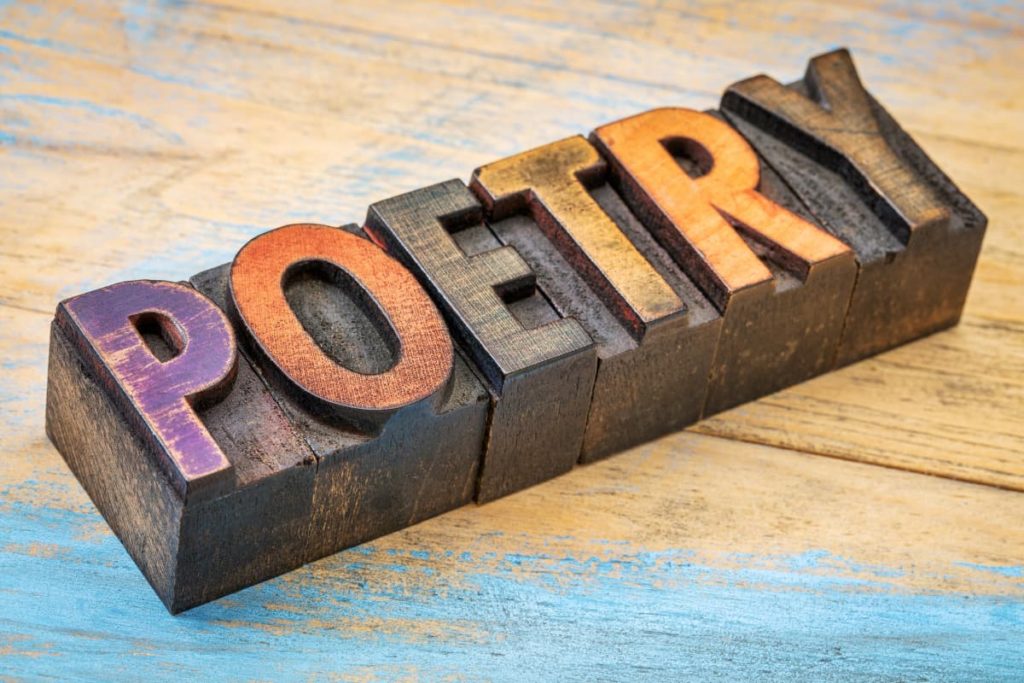Poetry is a classic form of expression. Many writers got their start crafting poems, and many who have moved on to other forms of literature still occasionally create poetry. Nothing quite conveys the complexity of human emotion as this writing style, and it gives both the structure and freedom to present big ideas in bite-sized forms.
Here’s how to know if your poetry is good or bad:
- It focuses on the main idea.
- Your poetry tells a story.
- It resonates emotionally.
- It paints a visual picture.
- The poem only uses the words it needs.
- It feels good to say.
In this article, we will go over the characteristics of good and bad poetry and things to keep in mind when writing your own.

1. It Focuses on the Main Idea
Poetry limits the space we have to write by its very nature, which can seem restrictive but it is an excellent means of following a built-in structure. That being said, it isn’t so different from other literary forms, as you still need a central idea that holds it together.
Your focus should always be on that primary concept.
It can be easy to get off-track and introduce too many ideas that detract from the principal point. As you’re writing, ask yourself if it builds on the initial concept.
2. Your Poetry Tells a Story
All writing is a form of storytelling, including poetry. No matter what you are trying to convey, the reader should be able to follow that story as they go. That doesn’t mean it can’t be abstract or even hard to decipher. A lot of poems are based on interpretation by the reader, but there should be some story woven throughout the lines.
Read through your poem as if you didn’t write it. Do you see the story? If not, then you might need to revise it.
3. It Resonates Emotionally
Emotion is the driving force behind a successful poem. For instance, in a novel, the reader should be emotionally connected to the characters and what is happening in the plot. How the reader feels lends context to the story being told and connects them to what has been written.
There is less time to make that connection in a poem, so it has to be done quickly. The reader should be hooked from the first line, feeling their way to the end.
Think about “The Raven” by Edgar Allen Poe. Immediately, we are drawn in by the incessant knocking of some unknown visitor. But as the poem goes on, it draws us in even more through words like, “filled me with fantastic terrors” and “to still the beating of my heart.” These words have us on the edge of our seats because they describe basic fears.
When you can write your poem with such vivid words like that, then you can resonate emotionally with your audience.

4. It Paints a Visual Picture
A good poem has visual imagery that paints a picture in the head of the reader. Descriptive language is critical, and without it, poetry falls flat and feels one-dimensional, without color or depth. It is why metaphor is so often found in poems.
Whatever you are trying to present to the reader, it should always have a strong visual element.
5. The Poem Only Uses the Words It Needs
There is a standard piece of advice in writing that states that you should go back through your work and remove 10% of it. This can be harder in poetry, where you are already more limited in your verbal space. But it remains a tried and true way to improve the work.
6. It Feels Good To Say
Flow is crucial when writing a poem, and it isn’t easy to get a sense of that flow when reading it in your mind. You should always consider speaking your poetry out loud, and if it’s written well, it will hopefully feel good to speak out loud.
Reading aloud is also a great exercise in developing your writing style and confidence, especially when done in front of an audience.
What Are the Qualities of a Good Poem?
The qualities of a good poem include consistent language which presents the main idea and that emotionally supports that idea. Successful writers carefully select the words they want to use and remove anything that is not strictly necessary. If the chosen words don’t flow, they have to go.
Does Poetry Have To Be Written a Certain Way?
Poetry does not have to be written a certain way, as there are more than 50 styles of poetry recognized by the literary world. It is a wonderfully diverse style of writing, which can take any number of forms, from haikus to sonnets to acrostic.
There is no singular way a poem has to be written to be qualified as “good,” as the content is much more important than the form.
Does a Poem Have To Be Written in Proper English?
A poem doesn’t have to be written in proper English. There is a common misconception that you have to follow an academically recognized form of English in order to write something that people enjoy. Many forms of English exist, from the halls of academia to more colloquial forms.
Plenty of forms meld regional or cultural language patterns.
You should write in a way that reflects you and connects to the reader to let them feel what you want them to feel. An example of this is the poem “I No Fit Breathe” by Elizabeth Oshuare Ombor-Pereowei, written in Pidgin English.
Does Good Poetry Have To Rhyme?
Good poetry doesn’t have to rhyme. Some of the most influential poetry ever written did not follow a rhyming pattern. While traditional rhymed poetry has been popular through the ages, writers have always stretched the definition or ignored it entirely.
You can express yourself in any way in which the language puts across the purpose of your poetry. Experimental poetry is a special form of literature that has drawn in readers for centuries.
Look at the work of e e cummings. His piece “L(a)…(a leaf falls on loneliness)” is one of the most often cited examples of modernist poetry ever created. In 22 characters, less than the average tweet, he paints a picture so clear in the reader’s mind that they know precisely what he was trying to express.
Conclusion
Poetry is a beautiful form of expression. It is also versatile, giving freedom to writers who want to stretch themselves creatively. You shouldn’t worry about whether your poetry is good or bad, but how it conveys the topic and emotion you want to share. The rest is window dressing.

